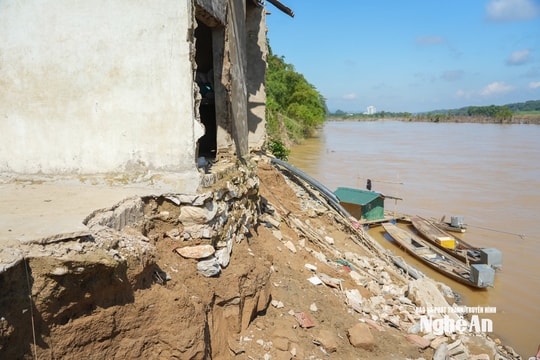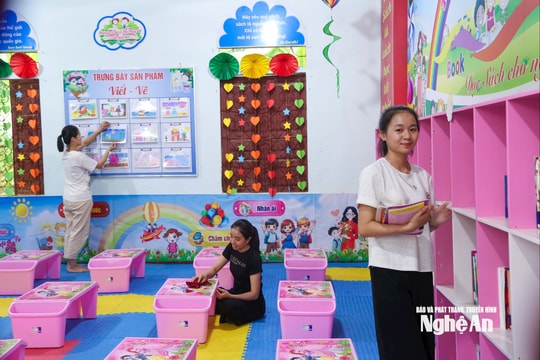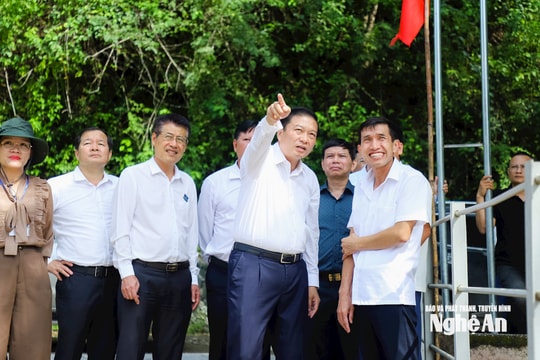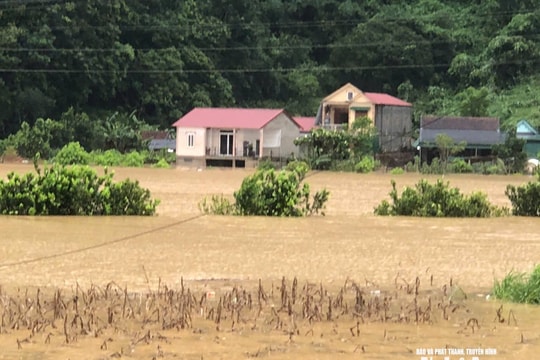Forest economic development: A sustainable way out of poverty in Con Cuong
(Baonghean.vn) - Thanks to good work in planting, caring for, managing and protecting forests, Con Cuong forest coverage has now reached nearly 85%, the highest in the province.
Protecting and developing sustainable forests
The family of Mr. Ha Van Quyet in Thanh Dao village, Bong Khe commune is one of the typical households getting rich from the hill and forest economy of the district.Con CuongPreviously, Mr. Quyet's family's economy relied solely on agricultural development, so life had many difficulties. Thanks to the propaganda and mobilization of local authorities and sectors, Mr. Quyet's family realized that afforestation is a sustainable and long-term economic development direction.
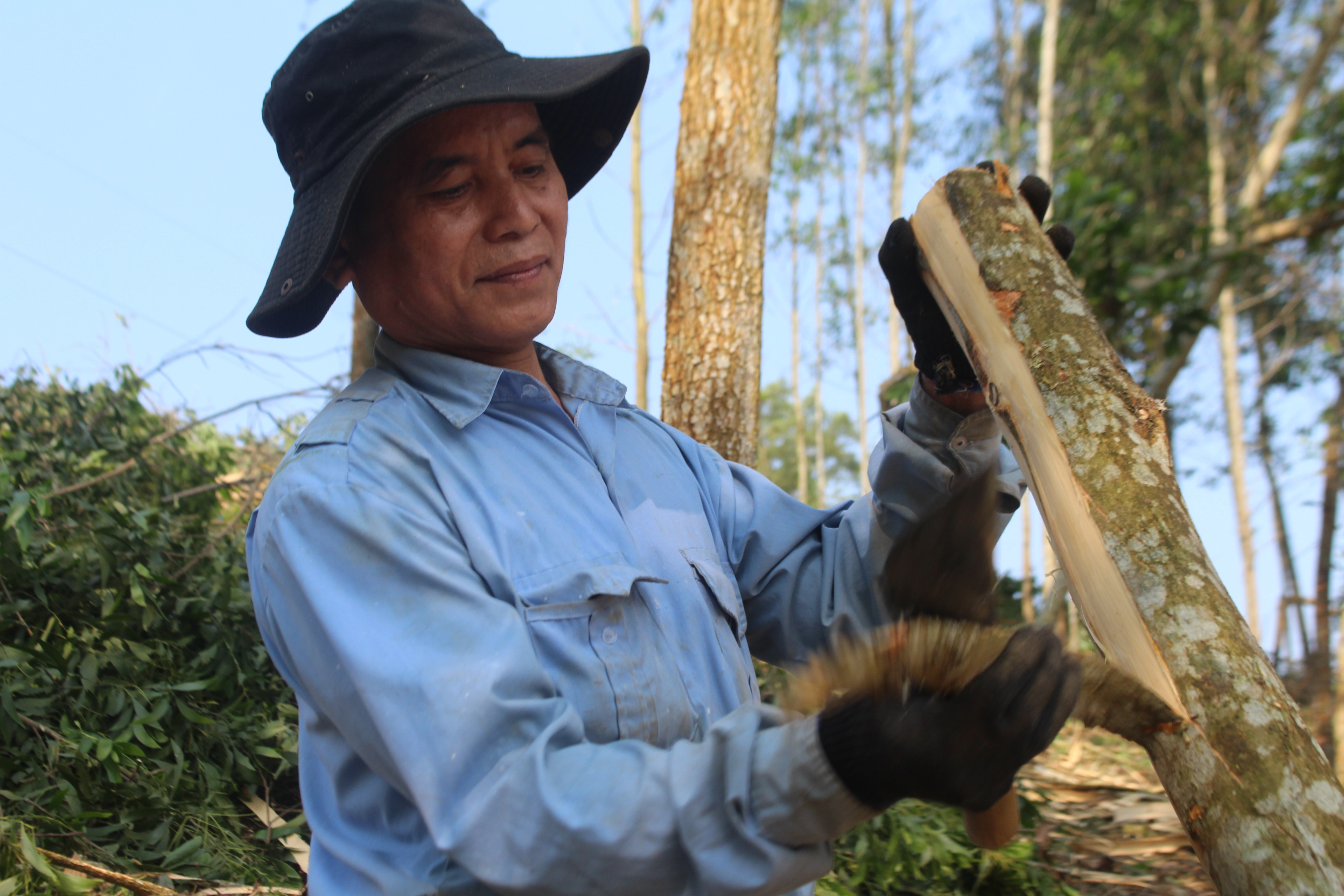 |
| Many families actively and enthusiastically participate in receiving land for forest planting. Photo: Ba Hau |
Therefore, in the past few years, his family has invested in planting more than 1 hectare of cassava trees. On the land area for perennial crops with low efficiency, the family has renovated and invested in planting more than 18 hectares of hybrid acacia, on 5 hills, harvesting in rotation. Up to this point, each hectare of cassava and hybrid acacia trees of the family has brought a stable income of over 100 million VND/year. In addition, Mr. Quyet also intercropped cassava, each year cassava also brings a harvest of over 70 million VND. From the stable income, he has built a spacious house and invested in sending his children to school...
In some villages and hamlets on the left bank of the Lam River such as Thanh Dao, Thanh Nam, Khe Ran of Bong Khe commune, afforestation has become a "lever" to help people escape poverty, promoting rapid economic and social development of the locality. The number of well-off households like Ha Van Quyet's family is not too rare.
Mr. Nguyen Manh Thang - Chairman of Bong Khe Commune People's Committee said: In recent times, the commune has guided people to plant forests along with care and protection, promoting the application of science and technology, especially intensive farming methods in forest production. Each year, the locality strives to plant 50 - 60 hectares of new forests.
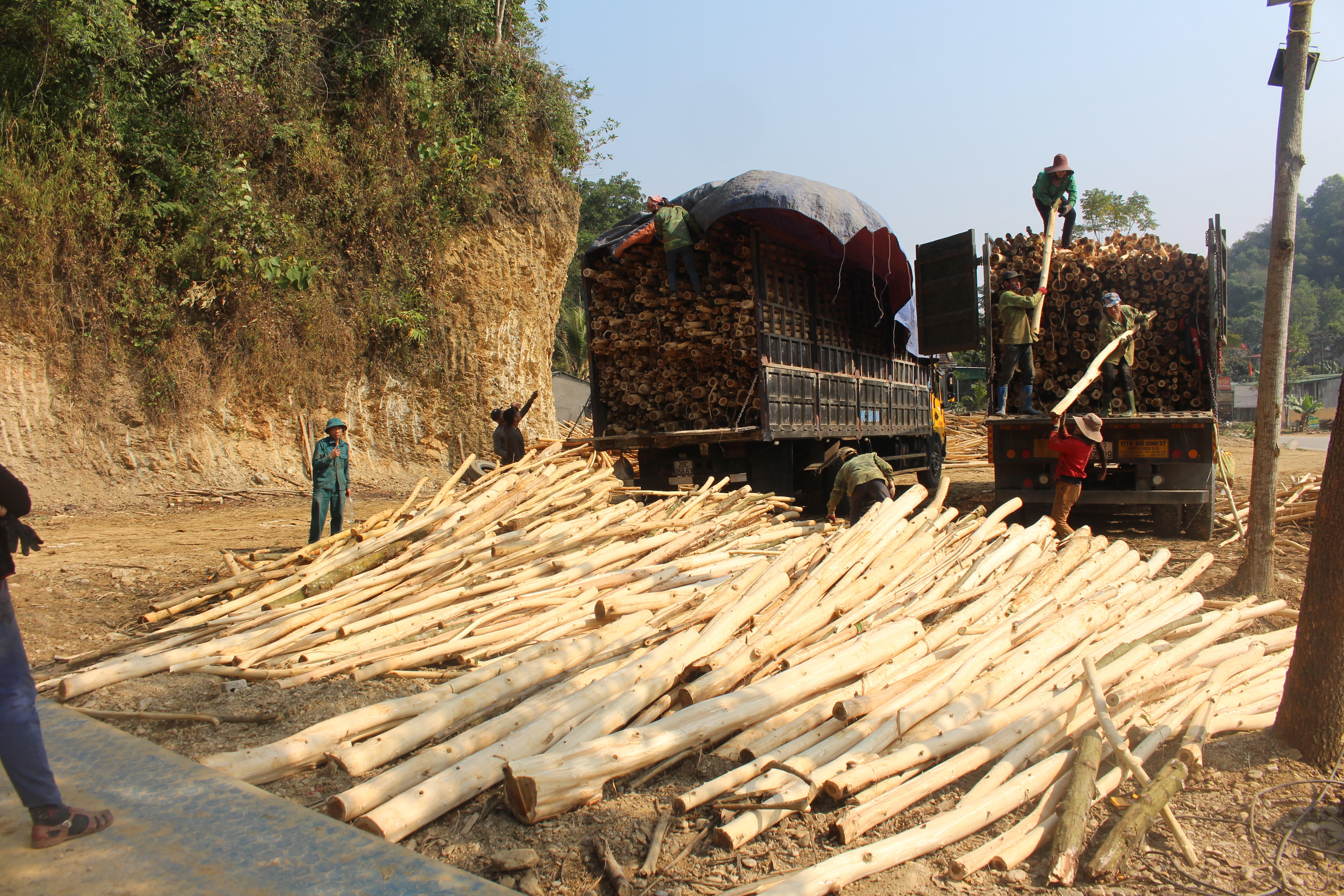 |
| Thanks to the development of the forest economy, many ethnic households in Con Cuong have escaped poverty. Photo: Ba Hau |
Located in the Southwest of Nghe An, the forest and forestry land area of Con Cuong district is nearly 164,600 hectares, accounting for 89.91% of the total natural land area, including: 17,961.16 hectares of protective forest; 73,882.07 hectares of special-use forest; 57,761.02 hectares of production forest (of which 7,023.5 hectares are production forests outside the planning of 3 types of forest). The forest cover is the highest in the province at 84.35%. In recent years, the Party and the State have issued many forestry development policies. These policies have encouraged and mobilized many collectives, households and individuals to actively and enthusiastically participate in receiving land for forest planting. On average, each year the whole Con Cuong district plants from 1,500-1,800 hectares of concentrated forest.
In recent years, considering forest economic development as a sustainable direction, Con Cuong mountainous district has focused on protecting and developing three types of forests (special use, protection and production) effectively, especially production forests and native large timber plantations that are being invested in by collectives and many households to expand their areas. In Don Phuc, Mau Duc, Bong Khe communes, raw material forests and timber forests have been strongly developed; primeval forests and protection forests have also been strictly protected. Many households have participated in forest planting from the project of sustainable forest restoration and management. Most of the forest plots planted by people have been granted land use right certificates. The boundaries and benefit mechanisms of the people are clear, thus limiting the occurrence of complaints.
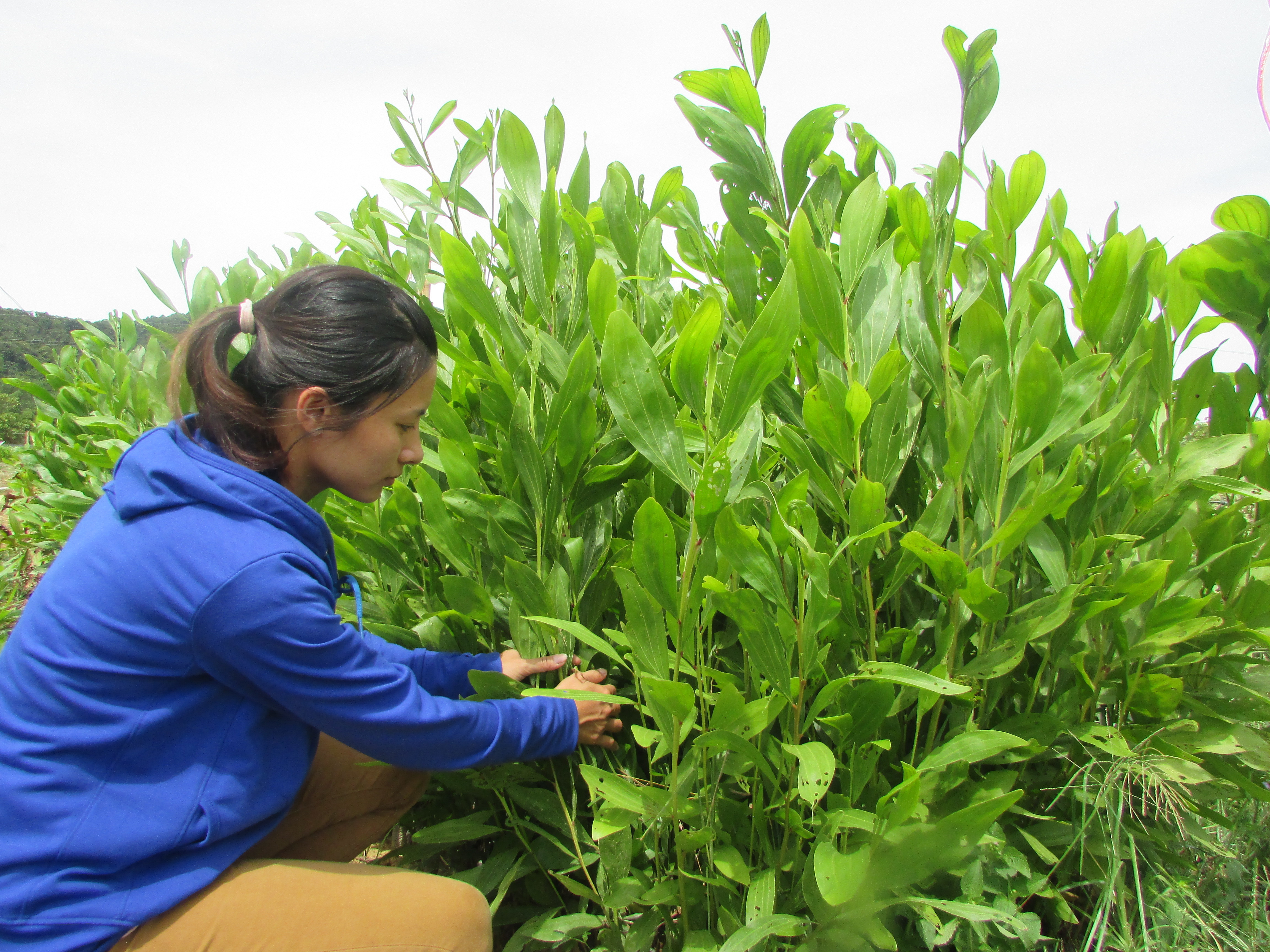 |
| In 2022, Con Cuong aims to plant 1,500 hectares of concentrated forests. Photo: Ba Hau |
Along with that, the communes in the district have also done a good job in managing, caring for and protecting forests, inspecting and patrolling forests at the root, and forest product control has been regularly strengthened. Propaganda work and signing of commitments to prevent forest fires have been paid attention to, and forest owners have done a good job in preventing and fighting forest fires. All levels and functional branches have actively prevented and strictly handled violations of the Forestry Law, promptly and strictly punished, detected and handled violators.
Mr. Thai Minh Hiep - Head of Con Cuong Forest Protection Department said: From January to November 2021, the whole district discovered and handled 83 cases of violations of the Forestry Law (criminally prosecuted 04 cases; administratively sanctioned 79 cases) reducing 37,411 hectares of forest; the volume of confiscated forest products was 50,717 m3 of wood. The amount of money collected and paid to the budget was over 751 million VND.
Enhance resource value
The benefits from forests are clear. However, in reality, the development of forest economy in Con Cuong still faces many difficulties. People do not know how to intensively cultivate and apply science and technology to cultivation. Some people still have the mentality of waiting and relying. The production linkage between people and enterprises is still not tight, so the consumption is not stable. The work of converting crop structure and replicating forestry development models has changed, but is still slow compared to the requirements... The work of forest allocation, associated with forestry land allocation is still slow, not meeting the needs of people in the area to receive land and forest so that the forest can have a real owner, thereby improving the quality and effectiveness of forest protection.
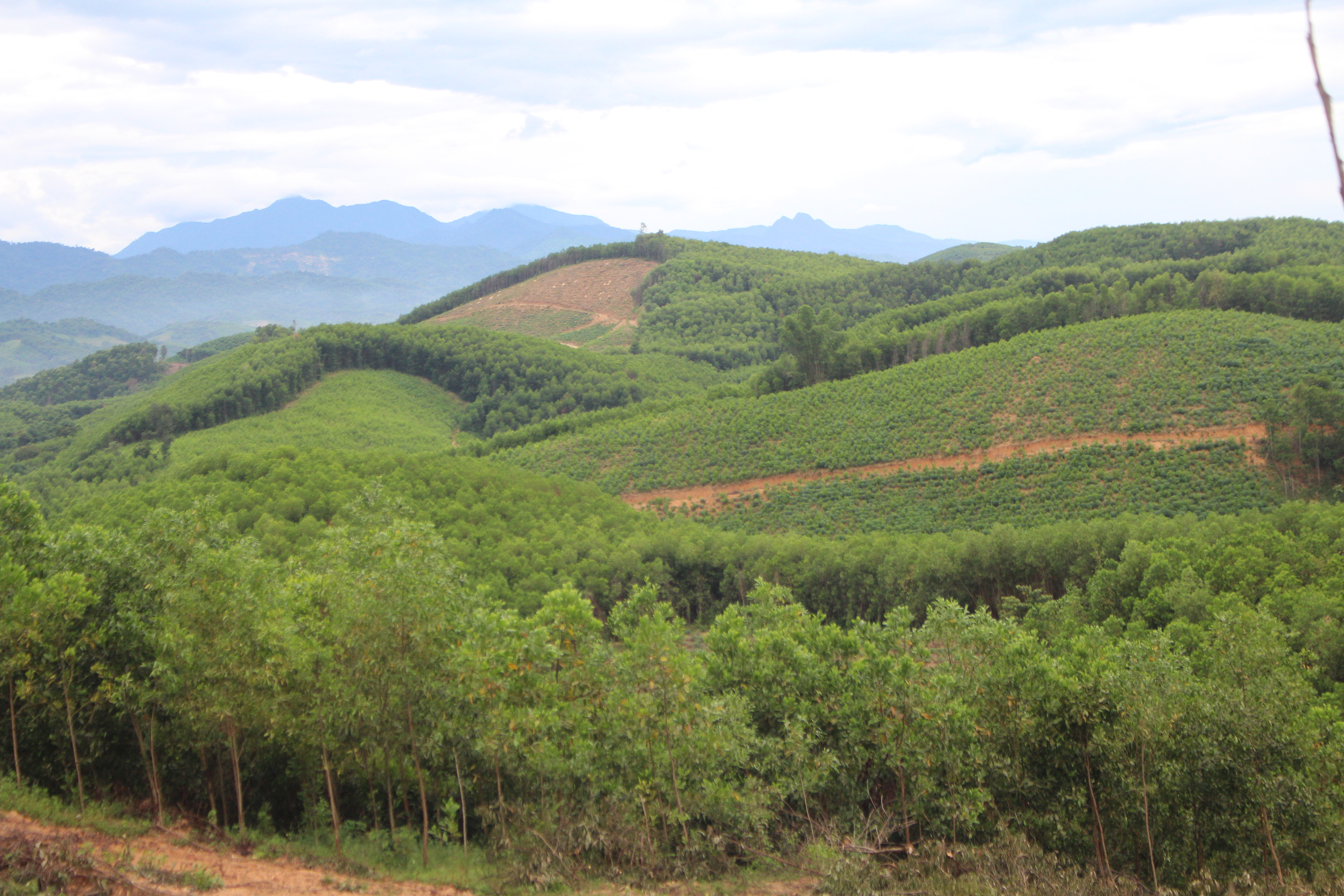 |
| An area growing acacia trees for timber in Mau Duc commune, Con Cuong. |
Mr. Lo Van Ly - Head of the Department of Agriculture and Rural Development of Con Cuong district said: "Currently, the district has invested in experimental planting of 21 hectares of macadamia trees and they are growing well, with the potential to be expanded to many communes in the highlands. The district also encourages economic sectors to invest in forest development; prioritize support for research and development of plant varieties; plan wood processing areas, non-timber forest products and aim to increase the added value of products, contributing to increasing income for people in the highlands, only then can poverty be reduced sustainably...".
The immediate tasks that Con Cuong has set on the journey of developing the forest economy, becoming a green ecological urban area, are: Managing and protecting well 149,604.3 hectares of existing forest area; Planting concentrated forests of 1,550 hectares... Reviewing and planning the exhausted forest areas as production forests to zone off the conversion areas and hand them over to the people for forest development, ensuring compliance with regulations; developing a plan to gradually convert from raw material forest area (where conditions permit) to developing large timber forests.
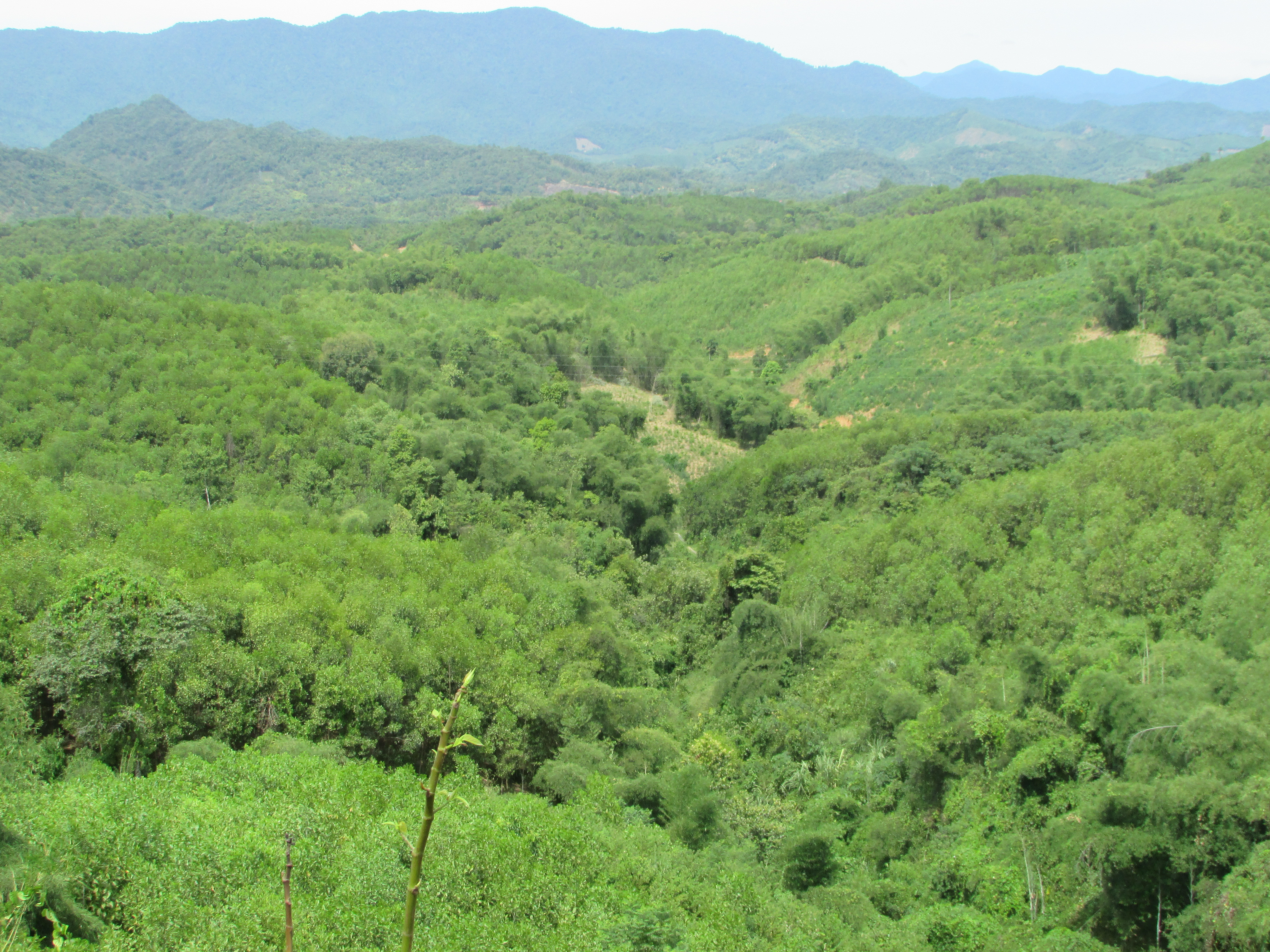 |
| Thanks to good work in planting, caring for, managing and protecting forests, Con Cuong's forest coverage has now reached nearly 85%, the highest in the province. Photo: Ba Hau |
Mr. Hoang Sy Kien - Chairman of the People's Committee of Con Cuong district stated: As a mountainous district, the area of agricultural land is small, so promoting the efficiency of forest land has been and is the right direction that the district is interested in investing in; contributing to enriching forest resources as well as in hunger eradication and poverty reduction for people in Con Cuong district. In the coming time, Con Cuong will continue to promote the socialization of forestry, strengthen coordination between functional agencies in forest management, protection and development; strengthen the work of contracting, zoning, protection and planting forests; focus on developing large timber forest planting models, building a number of sustainable forestry development models according to FSC-CoC standards (Forest Stewardship Council) associated with the development of ecotourism and experiential tourism with indigenous cultural identity.

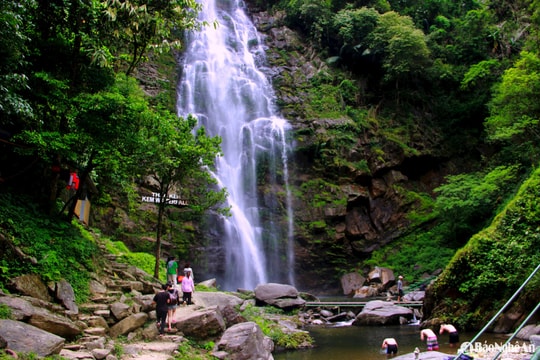
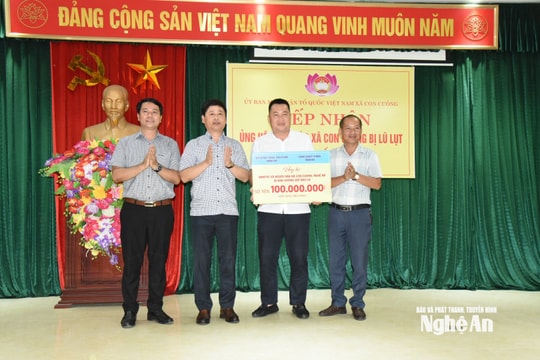
.jpg)
